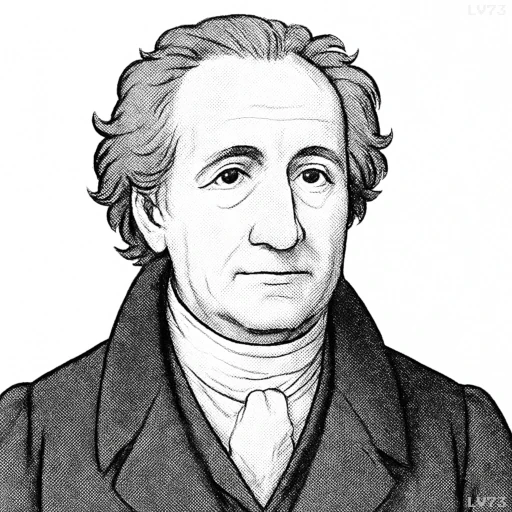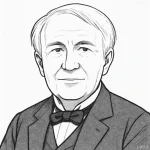“Error is acceptable as long as we are young; but one must not drag it along into old age.”

- August 28, 1749 – March 22, 1832
- German
- Poet, playwright, novelist, philosopher, politician
table of contents
Quote
“Error is acceptable as long as we are young; but one must not drag it along into old age.”
Explanation
Goethe acknowledges that mistakes and errors are a natural part of life, particularly in youth, when we are still learning and growing. Youth is a time for experimentation, learning, and developing, and errors are often necessary to gain wisdom and experience. However, Goethe stresses that as we grow older and gain more understanding, we should learn from our mistakes and not continue to carry them with us. Maturity requires the ability to reflect, adapt, and improve—thus, errors should not be perpetuated or ignored, especially as we gain wisdom and clarity with age.
Historically, this idea speaks to the philosophical view of growth and maturity. During Goethe’s time, there was a strong emphasis on the process of self-improvement and learning from experience. In his era, the journey from youth to adulthood was seen as one that ideally involved the development of wisdom and the ability to correct past errors. Goethe, as someone deeply involved in philosophy, literature, and reflection, would have valued the idea of personal evolution and the notion that age brings with it the responsibility to learn from the past and no longer be bound by previous mistakes.
In modern contexts, this idea is highly relevant to personal development and life-long learning. While making mistakes is a natural part of growing up, the idea that one should correct and learn from them as they get older is essential to achieving maturity. In adulthood, continuing to make the same errors without reflection or improvement can lead to regret or stagnation. Personal growth in later life often involves examining past choices, adapting, and ensuring that mistakes from youth do not continue to affect our decisions or relationships.
Goethe’s words remind us that youth may offer the freedom to make mistakes, but as we age, we gain the responsibility to learn from those mistakes and make better choices. Wisdom comes from the ability to reflect, correct our errors, and not let them define or limit us as we grow older.
Would you like to share your impressions or related stories about this quote in the comments section?




